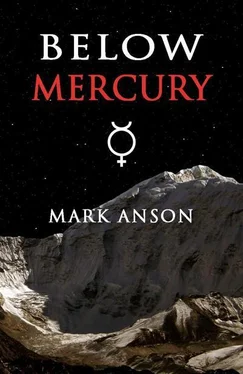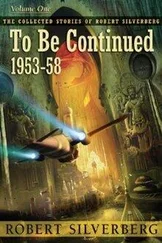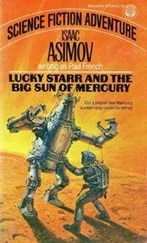‘Sure. Anything I should know about?’ Matt got into the right-hand seat, and slid it forward to a more comfortable position.
‘Nope. We did a small correction of the rotation axis a few hours ago.’ She pointed at one of the displays. ‘It shouldn’t need any adjustment for a day or so. Looks like you’ve got a quiet watch.’
The door of the bathroom, over by the gym area, opened and Abrams emerged. He sauntered over to the flight deck.
‘Mind if I take first turn?’ Matt asked.
‘Sure, be my guest,’ Abrams said, in his easy drawl, ‘I’ll just watch from here.’
Clare pushed her seat back.
‘Okay guys, I’ll be upstairs if you need me.’ She got up, and disappeared up the ladder to the lounge deck.
Abrams leant on the back of Clare’s vacated seat, watching Matt run through the checklist. Flight regulations required that one crewmember had to be seated at the flight deck at all times, so they took it in turns to keep watch, while the other got on with the rest of their duties.
‘Any icebergs ahead?’ Abrams asked, wryly.
Matt laughed. Sitting there, it was easy to imagine that they were the lookouts on some ocean-going ship, cruising in smooth seas at night. Instead of islands and shoals, however, the navigation display showed landmarks that truly belonged to the Space Age; distant planets, the location of the Sun, and the trajectory of the Baltimore; a gentle curve that arced out across the vastness of space.
‘Be back in an hour,’ Abrams said, and left Matt to the watch.
Matt enjoyed being at the flight deck station on the watches; it felt like he was flying the tug, although in reality he could do very little. The autopilot would not allow him to make any changes, or fire any of the thrusters, without disconnecting, and that would sound an alert that would have Clare and Wilson down here in seconds.
The checklist for the night watch was simple, and Matt was through most of it in a few minutes. The last item was the routine visual survey of the tug’s exterior, and Matt clicked through the various cameras, positioned at strategic points on the tug’s exterior.
He started at the nuclear engine at the rear of the tug, panning the camera slowly over the cooling fins of the reactor chamber, and the cluster of engine nozzles. This was somewhere that no human could go while the engine was at full power; the radiation from the core was just too dangerous. Now, however, the reactor was just ticking over during the long cruise, its waste heat providing electrical power for the tug’s systems.
Matt shifted to another camera, and started working his way along the length of the vast fuel tanks and space radiators. He took his time, panning the camera over every metre of the tug’s length. The tanks plunged into darkness, then emerged into sunlight again as the Baltimore turned over again in its rhythmic cycle.
He moved over the surfaces of the giant tanks and the louvred vents of the space radiators, changing cameras as he went. It was rare to find any problem, but a stray micrometeoroid could sometimes punch a tiny crater into the thin alloy of the tanks, and he inspected the surfaces carefully for any signs of damage.
He changed camera again to examine the forward end of the tug. With its separate fuel tanks, crew module and docking adapter, this part of the tug was effectively an independent spacecraft. In an emergency, it could separate and blast away from the rest of the tug using its own small rocket engines, hidden away within the attachment truss. Once separated, the forward section could function as a ‘lifeboat’ for the crew until rescue came, and could even perform limited orbital manoeuvres under its own power.
Below the crew module were two heavy-duty handling arms, each with a powerful, vice-like hand that could be used to manipulate cargo loads. One arm was retracted and hung at rest, the other held the drop tank that the spaceplane would need for the descent to the surface.
At the very end of the crew module, Matt could see the sleek shape of the Olympus spaceplane, its nose section open like a gaping jaw. Powerful couplings and latches held the spaceplane to the tug’s docking adapter, and provided an airtight conduit through which the crew and stores could pass. On either side were various couplings for electrical power, coolant lines, and the large pipes for refilling the spaceplane’s propellant tanks for the descent to Mercury.
As he panned over the spaceplane and came to the end of his inspection, Matt tried not to think of the reduction in living space they would face once they were down on the surface. The six of them would have to live in the spaceplane’s cramped conditions until they could get the inflatable habitat modules deployed, and even then, the facilities would be basic. They would be three of them in each module, with only a few places where it was possible to stand upright. There were no bathroom facilities; they would all have to use the small toilet and washroom on board the spaceplane. Abrams had remarked one day that it would be like moving from staterooms aboard an ocean liner to living in a tent. They would be thrust together by necessity, and Matt wondered how they would manage.
They had trained as a team for three months, so they could at least work with one another, but it was another thing entirely to have to live together for an extended period in such cramped conditions, and with hardly any privacy.
He had no worries about getting on with Rick, of course. They had worked together before, and knew each other’s irritating habits so well that they had learned to ignore them.
Matt didn’t know Abrams before the mission training, but the man had been a model of easy-going calm, reflecting his considerable experience in investigative missions.
Wilson was okay; he was junior in rank and experience to Clare, and the burden of the mission didn’t seem to weigh so heavily on him. Wilson enjoyed unwinding with the others after his watches ended, and could often be heard on the lounge deck, laughing over some joke. He seemed confident in his abilities, and Matt guessed that he would be promoted quickly once he had built up some more hours in space.
Dr Elliott was more of an issue. Matt tried not to dislike him, but if there was going to be trouble, that was where it would come from. It wasn’t that Elliott did anything wrong , but he did tend to keep himself slightly aloof from the rest of the crew. He spent more time than the others did in the privacy of his individual berth area, his curtains drawn, rather than spend time in the lounge, and that inevitably put a distance between him and the rest of the mission team.
Elliott also took issue with Matt’s point of view during the many speculative discussions about what they might find when they got to Mercury. As the only member of the team who had actually been in the mine, Matt was asked frequently for his views, but somehow Elliott always seemed to be there, ready to question any opinion that Matt might venture.
Matt felt increasingly that Elliott was only considering evidence that supported one explanation, and rejecting anything else. It was a worrying trait for an investigative mission.
And just how objective was he himself, Matt thought. Was he just as biased as Elliott, and unable to see it?
What Matt feared most was further uncertainty. The worst outcome would be an inconclusive one that would leave the hundreds of families back on Earth in a permanent, agonising limbo. In some ways, he thought, it might be better to find a piece of damning evidence that would prove that the mine personnel had brought about their own doom, as Elliott often theorised.
Whatever way he looked at it, living with Elliott looked like it was going to be a problem, and Matt hoped that they wouldn’t get drawn to share one of the modules together.
Читать дальше











